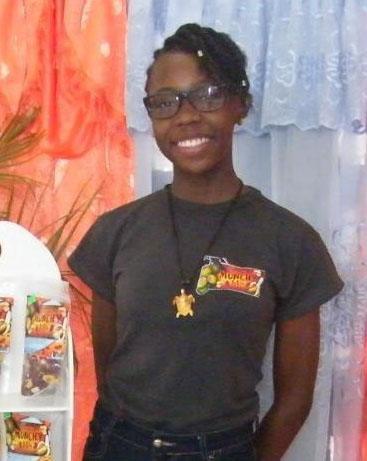Akailah Gordon is the sole Lindener among the batch of young female agro-processors, all graduates of the Guyana School of Agriculture (GSA), who the Stabroek Business interviewed recently. Like her colleagues, she is part of an emerging generation who have arrived at the junction of womanhood with a multitude of ambitions and are in the throes of making decisions that are likely to have a lasting impact on the rest of their lives.
You probably wouldn’t associate Akailah with the entrepreneurial side of agro-processing. She is a vivacious and impressively articulate young woman with an unmistakable interest in science and ambitions that include undertaking university-level studies in Food Safety and Microbiology.
The former St. Stanislaus College student leaves you wondering for a while but eventually ‘connects the dots’ that provide access to her real ambition. Her goal, it seems, is to infuse more ‘science’ into the production of food to address issues of both food safety and food variety.
Not that there is a complete absence of entrepreneurial ambition. Farming, she says, is “in the family.” Her father, Eusi Gordon is a farmer and her own inclination towards agro-processing has been influenced in some measure by her recollection of her mother’s diligent pursuit of kitchen-made seasonings and ‘bush’ teas.
Her pursuit of an agro-processing programme at the GSA was much more of a probe of possibilities than a definitive pursuit of a career path. She wanted, she said, to improve her understanding of a world of food processing that has now grown beyond the relatively ‘primitive’ pursuits of a few decades ago.
Academic curiosity, however, has made her a ‘student’ of agro-processing. Her interests range from the technology associated with processing to packaging, labelling and marketing, considerations which she understands cannot be taken lightly if success is to be realised.
For now, at least, her thoughts are also settled around pressing into service a plot of family land as a possible starting point to her own agro-processing pursuits and afterwards, perhaps probing the possibility of partnerships towards the end of becoming part of a successful enterprise. Somewhere in that ‘mix’ of ambitions there is the desire to create a modern agro-processing factory of her own though she is quick to add that if emerging agro- processors are to grow and thrive in Guyana, financing is a hurdle that has to be crossed. She believes, as well, that if the sector is to thrive it will be necessary for the expansion of productive capacity to be attended by a simultaneous development of a food safety infrastructure that is the route to capturing international attention.
Her perspective on the future of the agro-processing sector is impressively clear-headed. For newcomers, particularly those with startup financial challenges, it can be a tough learning curve. More than that “competition means that we have to get better. We don’t really have a choice.”





